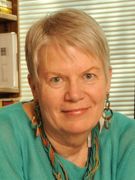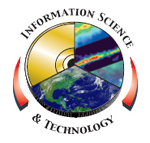
Please Note: The content on this page is not maintained after the colloquium event is completed. As such, some links may no longer be functional.
Jill Tarter
Director, Center for SETI Research
SETI Institute
Are We Alone?
Wednesday, May 11, 2011
Building 3 Auditorium - 3:30 PM
(Reception to follow)
Aliens abound on the movie screens, but in reality we are still trying to find out if we share our universe with other sentient creatures. Intelligence is very difficult to define, and impossible to directly detect over interstellar distances. Therefore, SETI, the search for extraterrestrial intelligence, is actually an attempt to detect evidence of another distant technology. If we find such evidence, we will infer the existence of intelligent technologists. For the past 50 years, the SETI community has had a very pragmatic definition of intelligence -- the ability to build large transmitters! The majority of SETI searches to date have looked for radio signals coming from distant civilizations. We've recently begun looking for very short optical pulses as well. As our own technology matures and innovates, we may try other means of searching, and we will certainly improve upon the searches that we are already conducting.
Guiseppi Cocconi and Philip Morrison ended their 1959 seminal paper on SETI with the statement, "The probability of success is difficult to estimate; but if we never search, the chance of success is zero." This remains true today! At the SETI Institute we are trying to get the whole world actively involved in the search; in addition to donating their spare CPU cycles, we want to enlist Earthlings' minds and eyes as pattern recognition tools and, for those who are technically proficient, their skills at signal processing and code development to improve and expand the searching we can do.
Jill Tarter holds the Bernard M. Oliver Chair for SETI (Search for Extraterrestrial Intelligence) and is Director of the Center for SETI Research at the SETI Institute in Mountain View, California. Tarter received her Bachelor of Engineering Physics Degree with Distinction from Cornell University and her Master's Degree and a Ph.D. in Astronomy from the University of California, Berkeley. She served as Project Scientist for NASA's SETI program, the High Resolution Microwave Survey, and has conducted numerous observational programs at radio observatories worldwide. Since the termination of funding for NASA's SETI program in 1993, she has served in a leadership role to secure private funding to continue this exploratory science. Currently, she serves on the management board for the Allen Telescope Array, a joint project between the SETI Institute and the UC Berkeley Radio Astronomy Laboratory. When this innovative array of 350 6-m antennas begins operations at the UC's Hat Creek Radio Observatory, it will simultaneously survey the radio universe for known and unexpected sources of astrophysical emissions, and speed up the search for radio emissions from other distant technologies by orders of magnitude.
Tarter's work has brought her wide recognition in the scientific community, including the Lifetime Achievement Award from Women in Aerospace, two Public Service Medals from NASA, Chabot Observatory's Person of the Year award (1997), Women of Achievement Award in the Science and Technology category by the Women's Fund and the San Jose Mercury News (1998), and the Tesla Award of Technology at the Telluride Tech Festival (2001). She was elected an AAAS Fellow in 2002 and a California Academy of Sciences Fellow in 2003 (and CAS Scientific Trustee in 2007). In 2004 Time Magazine named her one of the Time 100 most influential people in the world, and in 2005 Tarter was awarded the Carl Sagan Prize for Science Popularization at Wonderfest, the biannual San Francisco Bay Area Festival of Science. In 2006 Tarter became a National Advisory Board member for the Center for Inquiry's Office of Public Policy in Washington, DC. She is also a Fellow on the Committee for the Scientific Investigation of Claims of the Paranormal (CSICOP). Tarter was one of three Technology, Education, Design (TED) prizewinners and named one of the Most Influential Women in Technology by Fast Company Magazine in 2009, and in April 2010 was a recipient of the Silicon Valley Women of Influence 2010 Award, in addition to becoming an elected fellow of WINGS WorldQuest.
Tarter is deeply involved in the education of future citizens and scientists. In addition to her scientific leadership at NASA and SETI Institute, Tarter has been the Principal Investigator for two curriculum development projects funded by NSF, NASA, and others. The first, the Life in the Universe series, created 6 science-teaching guides for grades 3-9 (published 1994-96). Her second project, Voyages Through Time, is an integrated high school science curriculum on the fundamental theme of evolution in six modules: Cosmic Evolution, Planetary Evolution, Origin of Life, Evolution of Life, Hominid Evolution and Evolution of Technology (published 2003). Tarter is a frequent speaker for science teacher meetings and at museums and science centers, bringing her commitment to science and education to both teachers and the public. Many people are now familiar with her work as portrayed by Jodie Foster in the movie Contact.
IS&T Colloquium Committee Host: Jacqueline LeMoigne
Sign language interpreter upon request: 301-286-7040
